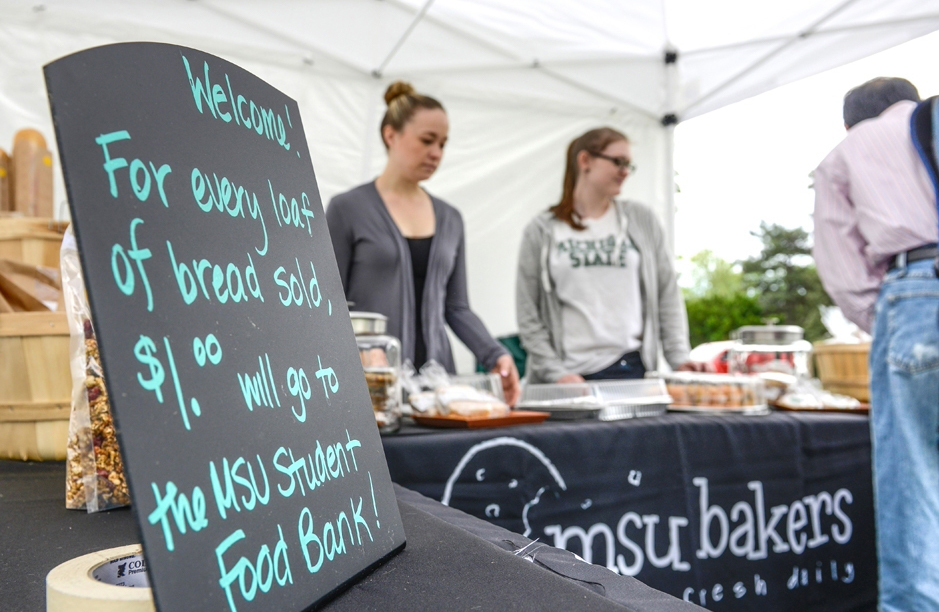It is unfortunate that not everyone has access to quality nutrition. Food insecurity can surface in surprising places, including college campuses. Thankfully, there are places like the MSU Student Food Bank, a resource for college students who may be uncertain about their access to food. The food bank provides free food and related items to assist in decreasing the overall cost of groceries for students. Students are provided with foods such as fresh produce, soups, pasta, dairy products, and other items. To be eligible to receive food bank services, beneficiaries must be enrolled MSU students.
Many Hands
The food bank is directed by Nicole Edmonds, a registered dietitian and a Health and Risk Communications masters student.
“The rising costs associated with higher education has made it increasingly difficult for college students to have the financial stability to afford adequate food to meet nourishment needs in addition to academic and housing expenses,” they said.
These kinds of everyday financial obstacles are part of what makes Edmonds’ nutrition research so vital to the MSU student community. Edmonds also works with Anne Buffington, another Health and Risk Communications masters student who serves as the Nutrition Program Coordinator in the Health Promotion Department at MSU Student Health Services. Their research began as a class assignment but has since grown into a grant-funded project. Together, they are not only providing health services to students, but also researching the prevalence of food insecurity among MSU students and the relationship between food insecurity and academics.
“I have learned a great deal about quality research design, implementation and evaluation with the help and support from faculty members including Dr. Kami Silk, Dr. Sandi Smith and Dr. Serena Carpenter,” said Buffington.
Feeding the Future
In addition to their research on food insecurity and its effects, Edmonds and Buffington have collected data through focus groups and online surveys in the hopes of developing communications that improve awareness of the food bank while minimizing barriers to nutritional support.
“Students are faced with difficult choices every day. We strongly believe deciding between spending money on food or spending that money on rent or books is not one that MSU students should be forced to make,” they said. “Ultimately we hope this research will help us to better reach, serve, connect and engage food insecure students to help them support their basic need for nourishment so they can focus on supporting their appetite for learning while at MSU and beyond.”
Between textbook costs, roommate squabbles, exam cramming and social life balancing, college students have a lot on their plates. Questioning whether there will be quality food on their actual plates should not be among the questions students have to consider. That is what makes Edmonds and Buffington’s research so important, and why the MSU Student Food Bank continues its mission to alleviate the stresses of food insecurity on campus.
As they continue their research, Edmonds and Buffington will be launching a new student survey in the coming weeks. For those interested in joining the MSU Student Food Bank’s mission, information about becoming a food bank volunteer is available on the organization’s website.
By Kristina Pierson
